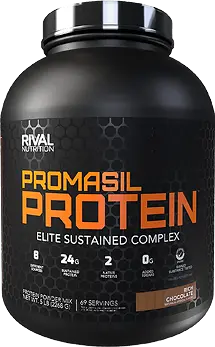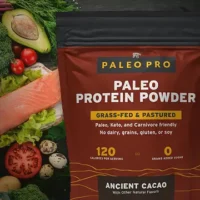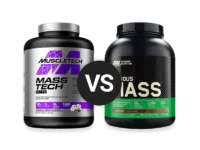Knowledge BaseYou're Questions Answered
How many calories are in egg protein powder?
Egg protein powder, often derived from egg whites, is a popular protein supplement known for its high protein content and excellent amino acid profile. It is commonly used by athletes, bodybuilders, and individuals seeking a high-quality protein source free from dairy. Understanding the calorie content of egg protein powder is important for those monitoring their caloric intake or following specific dietary plans.
Calorie Content in Egg Protein Powder
The calorie content of egg protein powder can vary depending on the specific product and processing methods. On average, a typical 30-gram serving (about 1 scoop) of egg protein powder contains approximately 100 to 120 calories. This range is influenced by the protein concentration and whether the product includes additional ingredients or additives1.
Breakdown of Nutritional Content
- Protein: A 30-gram serving generally provides around 23 to 25 grams of protein, which constitutes the majority of the caloric content.
- Carbohydrates: Egg protein powder typically contains very low amounts of carbohydrates, often less than 2 grams per serving, depending on the specific formulation.
- Fats: The fat content in egg protein powder is usually minimal, often less than 1 gram per serving, making it a low-fat protein source.
Benefits of Egg Protein Powder
In addition to being a high-quality protein source, egg protein powder offers several nutritional benefits:
- Complete Amino Acid Profile: Egg protein is a complete protein, containing all nine essential amino acids necessary for human health, making it particularly effective for muscle protein synthesis and recovery2.
- High Biological Value (BV): Egg protein has one of the highest biological values among protein sources, indicating that the body can efficiently absorb and utilize the protein3.
- Low in Fat and Carbohydrates: Egg protein powder is low in both fat and carbohydrates, making it suitable for a wide range of dietary goals, including weight management and low-carb diets.
- Allergen-Friendly Option: While egg protein is not suitable for individuals with egg allergies, it is a good alternative for those who are lactose intolerant or allergic to dairy-based proteins.
Usage and Considerations
Egg protein powder can be incorporated into the diet in various ways, including in shakes, smoothies, baking, and cooking. Its neutral taste and high protein content make it a versatile ingredient for increasing protein intake without significantly increasing calories. For those with egg allergies, it is important to avoid egg protein powder to prevent allergic reactions.
- Campbell, B., Kreider, R. B., Ziegenfuss, T., La Bounty, P., Roberts, M., Burke, D., ... & Antonio, J. (2007). International Society of Sports Nutrition position stand: protein and exercise. Journal of the International Society of Sports Nutrition, 4(1), 8.
- Wells, M. L., & Vernalis, M. N. (2014). The health benefits of egg whites: Functional and protein-based applications in human nutrition. Nutrition, 30(2), 205-213.
- Gleim, G. W., & McHugh, M. P. (1997). Glutamine: A conditionally essential amino acid and its role in exercise. Nutrition, 13(1), 78-83.
Related Questions

Your Answer
We are a participant in the Amazon Services LLC Associates Program, an affiliate advertising program designed to provide a means for us to earn fees by linking to Amazon.com and affiliated sites.





